HOME | ABOUT US | MEDIA KIT | CONTACT US | INQUIRE
HOME | ABOUT US | MEDIA KIT | CONTACT US | INQUIRE
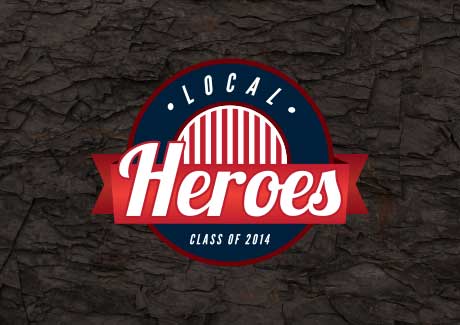
What makes us give? In a world where Darwinian theory tells us that only the strong survive, what compels humans to be their brother’s keeper, even if the amounts they have to give may pale in comparison to large donations by philanthropic corporations?
As this year’s Local Heroes show us, the call to serve comes from a wide range of sources:
A sense that one has incurred a debt to be repaid, perhaps, or an outrage over the suffering of innocents. It may come from a desire to help a single friend, or to feed countless thousands who otherwise would go hungry. It may come from a belief that, no matter what challenges life has thrown at you, someone else has it worse.
These generous souls have given of themselves—in one case, literally—to make life better not just for friends and neighbors, but for complete strangers.
When it comes to giving, theirs is a donation that enriches each one of us.
DON POST
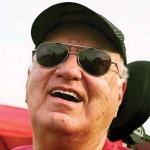 It was, effectively a death sentence: When Don Post was diagnosed with Amyotrophic Lateral Sclerosis 38 years ago, doctors said he might squeeze three more years out of life. Maybe five.
It was, effectively a death sentence: When Don Post was diagnosed with Amyotrophic Lateral Sclerosis 38 years ago, doctors said he might squeeze three more years out of life. Maybe five.
But Post has a powerful will to live—he’s 33 years past the upside of that prognosis—and to serve. “I actually had no idea how much time I had left, but I decided to do whatever I could to help others every day I had left,” Post said. “My diagnoses tended to give me an urgency to fix things as much as possible while I’m here.”
That “diagnoses”—plural—is not a typo: In addition to ALS, Post has shaken off two heart attacks, a pair of strokes, and is dealing with multiple sclerosis. And yet he keeps going.
It started after he had to give up his career in sales management in the heavy construction industry. He may have been done with a career, but he wasn’t done working. He took a part-time role for 14 years at the National MS Society in Mission.
His love for motorcycling—Post’s e-mail handle is “Harley”—and a chance connection with another biker led to a March of Dimes event called Walkamerica, and then to Bikers for Babies.
Last year, when he was announced as the Frances Foundation winner at a ceremony in Las Vegas, he was pleased, and collected. Then he learned that the Kansas Speedway would match his the $100,000 donation to March of Dimes.
“Well, that is when I lost it and broke down and cried,” Post recalls. “I have not felt that much joy since the birth of my kids.” Kansas Speedway President Pat Warren surprised him again at this year’s Bikers for Babies, announcing an additional $20,000 donation in Post’s name to March of Dimes.
Every year at the Bikers for Babies event, he says, “two things that choke me up are when young Maggie Marx sings the National Anthem and when Ed Hale and Ed’s Posse dump all the cash they have collected all year on our stage. This year, it was $117,000,” Post said.
That financial boost will help the March of Dimes add new programs and expand existing ones, including research on neonatal health, educational initiatives and support groups to help parents deal with a hospitalization or death of a child. And Post himself also picked up the keys to a 2014 Chevrolet donated by the car maker.
“Don Post is a hero, pure and simple,” the award’s namesake, Betty Jane France, said during the presentation. “We have so much respect for his accomplishments in the face of personal adversity along with his commitment to helping children who face their own adversity.”
For Post, the honor isn’t his; it belongs to littler souls.
“When I see those kids who have fought for their lives,“ Post says, “then I know why God put me here.”
LOREN AHLRICHS
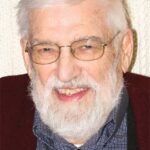 Since the day he finished graduate school, Loren Ahlrichs’ interest in agronomy—combined with first-person recollections of the Great Depression—have driven his interest in food production: Bigger yields, greater efficiency, more food on the table, at lower costs.
Since the day he finished graduate school, Loren Ahlrichs’ interest in agronomy—combined with first-person recollections of the Great Depression—have driven his interest in food production: Bigger yields, greater efficiency, more food on the table, at lower costs.
“I was born and raised on a farm in Iowa, and growing up, we produced all our own food, except for a few things,” he says. “And that always left an impression in my mind, so I’ve been involved in hunger issues since I got my last two degrees,” traveling the world over in that pursuit for both Monsanto and Farmland Foods before retiring.
His interest in that field—and his faith—led him to help establish a food pantry through Metro Lutheran Ministry in the 1970s, and to help lay the foundation for what today is Harvesters-Community Food Network, which now is arguably the region’s highest-profile organization in that portion of social-services spectrum. A plaque recognizing him for his contribution for that service, and a framed commendation from the Kansas City Council, signed by former Mayor Richard Berkley, have places of honor in the office in his Overland Park home.
His first wife, who died of melanoma, had been a dietitian working with him to develop healthy-eating programs for those receiving food-bank products. He has since remarried, joining two families with six children and 12 grandchildren, and his wife, Ruth, has assisted with efforts to build thrift-store operations that support the overall mission of their church, Atonement Lutheran.
The groundwork for Harvesters yielded roughly 150,000 pounds of food, he recalls, “but now they distribute tons and tons. The biggest problem back then was getting the companies involved to trust that you could handle the food wisely.” And every scrap had to be accounted for: “Even the things that had to be thrown away was weighed, he said.
Working behind the scenes had its own rewards, but Ahlrichs found reward on the front lines, too.
“I spent a lot of years working at putting the pieces together,” Ahlrichs says. “Sometimes, you spend so much time trying to get the whole operation going you didn’t get to really spend as much with individuals who are receiving it. As the years went by, I decided that I needed to spend more time with the people receiving the goods.”
And from that, he’s learned a great deal about philanthropy practiced on a personal level.
“One of the things that’s important is, you’ve got to get down there and touch hungry people close,” Ahlrichs says. “Everybody has a different story and you need to know that story. Our satisfaction is that we get to spend time there getting food together, and we get hugs from people who bless us for it, and it doesn’t get any better than that!”
ELLEN MURPHY
 So when, exactly, did organ donation become a long-term goal for someone like Ellen Murphy? “It never crossed my mind,” she says candidly. Last year, while she was still serving as a personal trainer, she heard about one client’s plight with kidney failure and the rigors of dialysis. So Murphy made a snap judgment: She asked Dave Seldner to send her information on how to determine whether she would be a match for an organ donation.
So when, exactly, did organ donation become a long-term goal for someone like Ellen Murphy? “It never crossed my mind,” she says candidly. Last year, while she was still serving as a personal trainer, she heard about one client’s plight with kidney failure and the rigors of dialysis. So Murphy made a snap judgment: She asked Dave Seldner to send her information on how to determine whether she would be a match for an organ donation.
“I knew there was only a 1 in 30,000 chance of there being a match with a non-family member,” says Murphy, who’s has since moved into a real estate career with Kristin Malfer & Associates in Johnson County. “But things happen the way they’re supposed to,” she said. “I decide to give blood, and had my husband and Dave and his wife pray that it would be a match.”
Prayer answered.
In August 2013, the surgical transplant team at the University of Kansas Hospital took one of her kidneys and gave Seldner, a private investor, more than just a new lease on his old life.
“It means, literally, a grant of continued life—a grant of a new life,” said Seldner. “Her contribution and heartfelt love is beyond my and my wife Jeanne’s, description.” And in the One Good Turn Department, Seldner did another by joining the National Kidney Foundation’s board of directors for the Kansas City chapter.
“I would do it 10 times over,” said Murphy. “He didn’t ask me to do anything, he just told me what his situation was.
I love to help people, and I would rather have one less kidney and allow two people to have a better life—him and his wife.
She says she doesn’t look at it as though she saved someone’s life, but Seldner has another take on things. While being assessed for the transplant surgery, doctors uncovered a coronary condition that required a five-artery bypass procedure.
Murphy, however, still won’t claim credit.
“I lost a kidney, but I gained a family (she and her husband get together with the Seldners roughly five times a year, she said), and I would rather have the family. I can’t do ibuprofen, have to do Tylenol, and there’s no hard-core racing allowed with just one kidney, but the quality of my life is amazing.”
And that’s a message she hopes to broadcast to as many people as she can.
“If more people would step up and not wait to ask, that would be amazing,” she said. “But people don’t want to donate because they think their quality of life will change or be less. It’s not. And if something did happen to me, where I needed a kidney—there’s way less than a 1 percent chance of that—I go to the top of the donor list.”
JAN REGAN
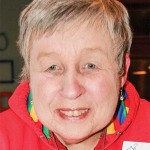 It started, says Jan Regan, with a sense that a debt must be repaid.
It started, says Jan Regan, with a sense that a debt must be repaid.
In 1982, her 11-year-old daughter, Casey, was diagnosed with non-Hodgkin’s lymphoma. That type of cancer yielded a 10 percent chance of survival at the time.
“We went through 18 months of hell, not knowing if she would make it,” Regan recalls.
As a student at St. Agnes, Casey had been involved with fund-raising efforts to support the former Ronald McDonald House on State Line Road. So when it came time to benefit from the program, the family’s view of it took on a new perspective.
“People would drop off meals, and I so appreciated that,” Regan says. “When she started getting better, we felt like we should do something.” Recalling the meals that strangers had provided, she asked the director if she could start a weekly meal program.
And for nearly every one of the nearly 1,600 Sunday nights since early 1984, Jan Regan has been at the Ronald McDonald House, directing meal delivery and set-up.
“I go to the house at 4 o’clock every Sunday; my husband does his thing, and I do mine,” she says. And after each of those dinners, follows up with thank-you notes to those who provided or delivered the meals, and beats the bushes across Kansas City for more school groups and church groups to take up part of that cause.
Remarkably, she’s done this without a dime of corporate underwriting for all those years. “I’ve twisted every arm in town to get people to do the dinners,” Regan says. “It’s not a simple dinner for two; it’s 40 people, plus your group.”
But to help the families of those with a seriously ailing child in the hospital, each meal is a Godsend. “It’s been so neat to talk to people from the outside world,” Regan says.
“At the hospital, it’s all medical talk, but if you can talk to people about the weather, or their sports teams or everything else going on, it’s a great diversion for those families.”
The experience has yielded too many precious moments to count. “ A couple of years ago, there was a little guy at the kitchen table with a humongous bandage around his head,” Regan recalls. A nurse at Children’s Mercy had given the second-grader that truck, and when Regan introduced him to students from Blue Valley North High School as they were delivering that night’s meal, “pretty soon, there were 30 students on the floor with him, playing with that truck. It just happened.” The students went home and, the next day, each wrote a get-well note to the boy.
As for Casey, the inspiration for Regan’s voluntarism? She beat the cancer, went to college in Chicago, fell in love, got married, then had two kids of her own. She turned 43 this year. “Miracles,” says her mother, “do happen.”
FRED MITCHELL
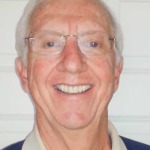 He saw the numbers with his own eyes, but Fred Mitchell didn’t believe them: A consultant’s study for the Northland Community Foundation, for which he served as a board member, came back with a recommendation that the biggest issue facing civic leaders in that comparatively prosperous part of the region was, incongruously, childhood hunger.
He saw the numbers with his own eyes, but Fred Mitchell didn’t believe them: A consultant’s study for the Northland Community Foundation, for which he served as a board member, came back with a recommendation that the biggest issue facing civic leaders in that comparatively prosperous part of the region was, incongruously, childhood hunger.
Then Mitchell started to dig a little deeper. As a financial-services executive—his day job was at his Mitchell Capital Management—
and as a resident of the sprawling, prosperous and fast growing Northland, hungry kids weren’t part of the everyday equation.
“I was really skeptical,” Mitchell says. “I asked a lot of questions. There’s a reasonably affluent community in these two counties (Clay and Platte), from Liberty to Parkville. But they convinced me that it was real, and the results were accurate.” He turned to fellow board member Mike Short, and they agreed: This was unacceptable. Something needed to be done.
That sparked the founding of Feed Northland Kids, partnering with school districts, churches, and PTAs to create a backsnack program, filling backpacks that go home with kids on Friday afternoons to ensure that they have something nutritious to eat until classes resume on Mondays. Since then, thousands of backpacks have been filled to meet the need. And the organization continues to expand through new collaborations with school districts north of the river.
It’s been a transformative experience for Mitchell.
“I’ve done a fair amount of reading and had conversations with folks at Harvesters, and I do think, if I have one firmly held opinion about all of this, that the food-stamp program is under-funded,” Mitchell says.
“I’m a politically conservative guy, but this is one area where we spend huge amounts of money, and in my opinion, there’s a misallocation of resources,” Mitchell said, noting the size of federal, state and local programs combined, as a percentage of the nation’s total income. “The food-supplement program needs to be expanded to cover that. Food is a basic need, and the whole program needs to be rethought and reviewed.”
Even if it’s redesigned to require working in a food pantry to maintain eligibility for recipients, he said, change is imperative: “It is a national disgrace that we have hungry people in our country. I don’t think we should let anybody go hungry, and particularly children—they haven’t made bad choices, they were simply born into that. That cycle is going to be broken, and it has to start by making sure all kids are adequately fed.”